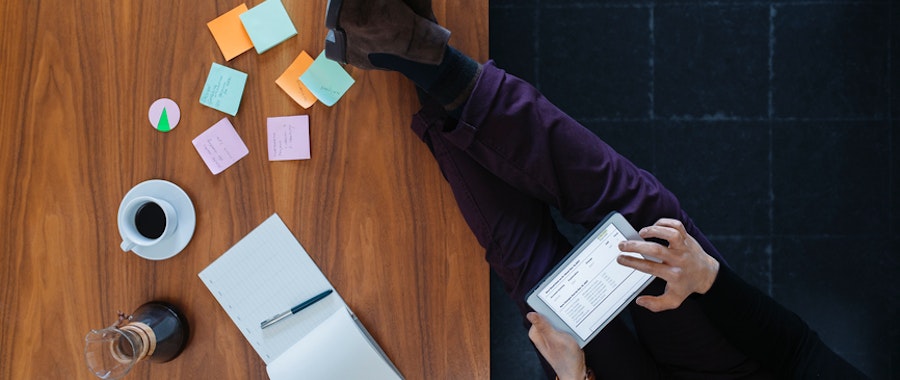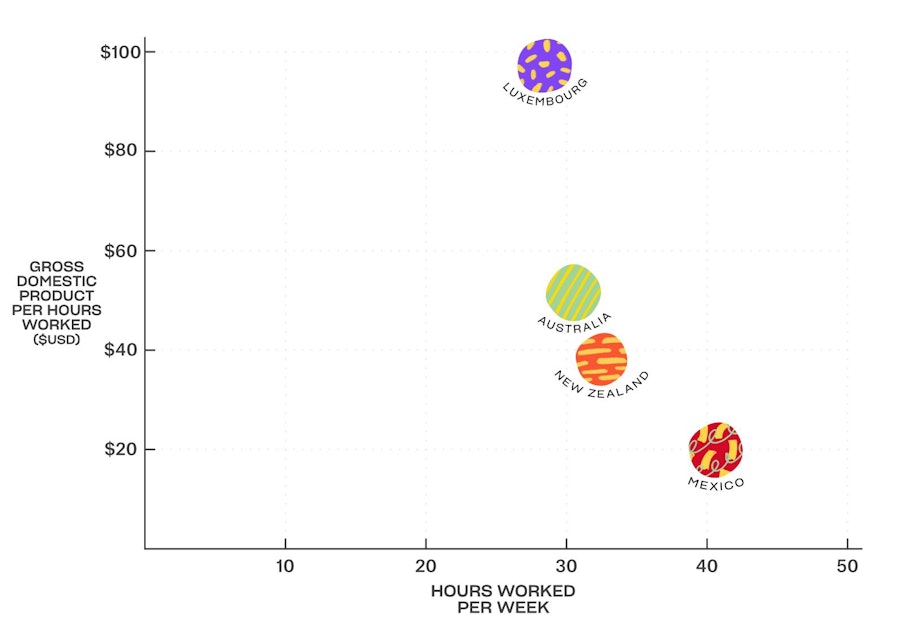
Four more ways to be more productive in the office
Work smarter, not harder is more than a convenient metaphor. With the right processes in place, your team can work fewer hours, get more done, and stay happier in the meantime. Here are a few ways to do it right.
Take a look at these global statistics on the value of a nations GDP per hours worked.

Take breaks when you feel like it
The office slacker is always hanging around the water cooler, going for coffee, and leaving for walks – he must be unproductive, right? We’ve written before about the importance of breaks for productivity in general. Other studies have confirmed their importance for creativity and problem-solving.
One found that activity in numerous areas of the brain associated with complex problem-solving increases when we daydream, and another found that breaks help us refocus on the goal of our task. Spending time on creating or producing anything can get you stuck on minor details (designers, we’re look at you), but taking time out forces us to think about what we’re ultimately trying to achieve.
Exercise on your lunch break
As well as making you take that ever-important break, a brisk walk at lunch will boost circulation and release endorphins like dopamine and norepinephrine, which boost focus. Anandamide, another neurotransmitter, increases lateral thinking – an essential starting point for creativity. Together, exercise puts your mind into close to a ‘flow state’ were ideas arrive faster and more freely than they otherwise would.
Hydration is the essence of creativity
Being dehydrated, even by only 1.5%, can make moods worse, make tasks feel harder, lower concentration and induce headaches. So it stands to reason that to keep the glass looking half full, you need to keep your glass full as well. Walking to the water cooler and back can also count as a minor break from your work. Two birds, one stone.
Talk to your co-worker
Dire warnings about chatter killing productivity might be overstated. A clever study from MIT mic’d up employees and weighed their conversation against productivity; they found the chattiest ones were also the most productive (no matter what they spoke about). Scientific American even confirmed that diversity of opinion leads to the best possible work – so keep the conversation going.
This report from the Harvard Business Review found most managers can’t tell the difference between workers who put in 80 hour weeks, and workers who put in 50. But we do know that long hours can cause impaired sleep, depression, heavy drinking, diabetes, impaired memory, and heart disease. So go ahead and take that break. The science says so.

